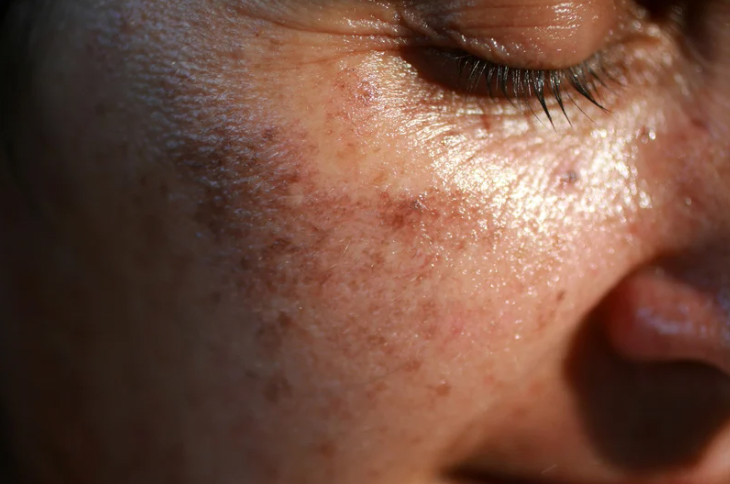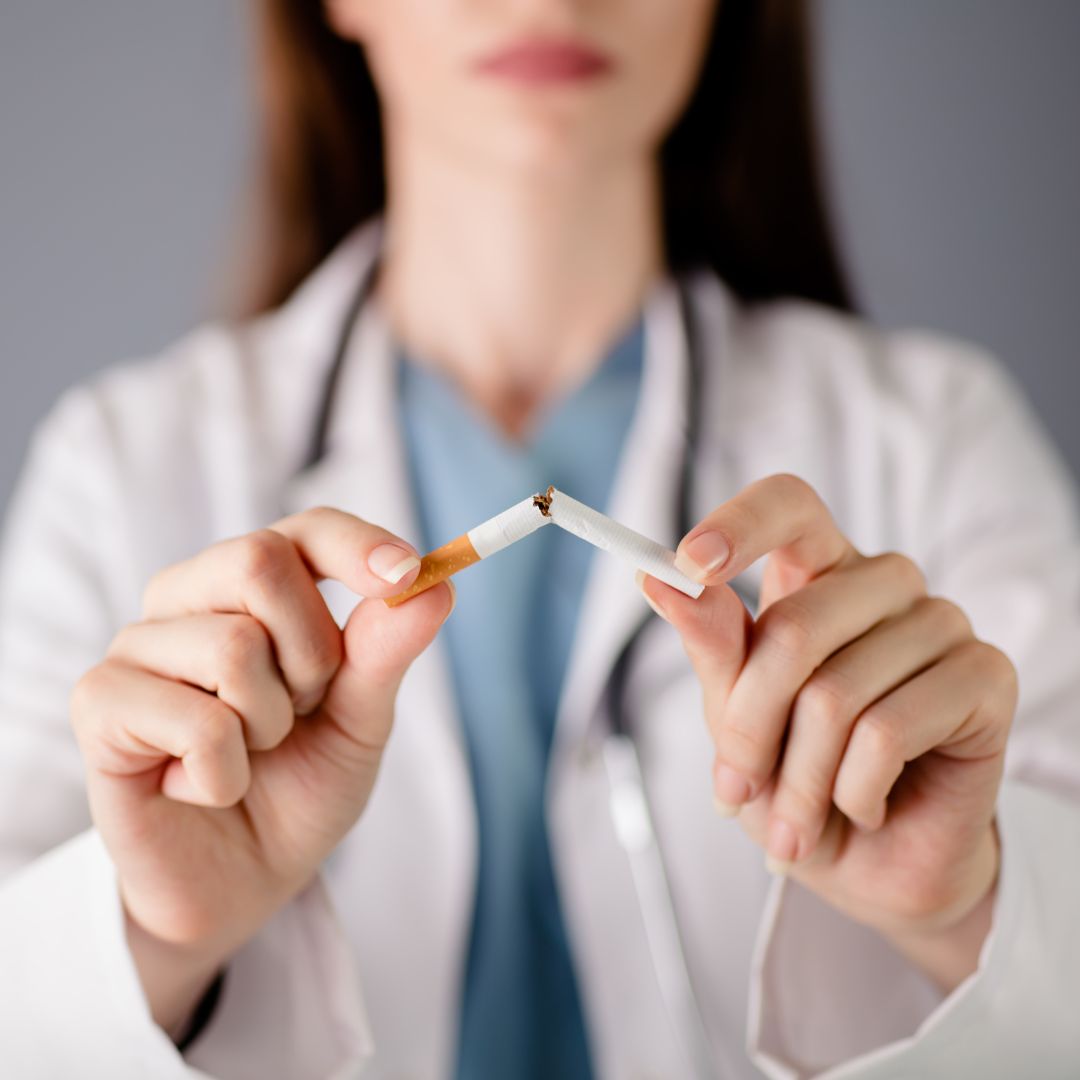Dark spots on the face, also known as hyperpigmentation, are common skin concerns that can affect anyone. They're usually not a cause for concern, and we'll address what dark spots are, how they form, their distinction from acne scars, whether they can go away, and the best methods for removing them.
What Are Dark Spots on the Face?
Dark spots, or hyperpigmentation, are areas of the skin that become darker than the surrounding skin. This occurs when an excess of melanin, the pigment that gives skin its color, forms deposits in the skin. Dark spots can vary in size and can appear anywhere on the body but are most common on the face, hands, and other areas frequently exposed to the sun. They can range from light brown to black and are often caused by prolonged sun exposure, hormonal changes, or skin inflammation.
How Are Dark Spots Formed?

Dark spots can form due to various reasons:
- Sun Exposure: UV rays stimulate melanin production, leading to sunspots or solar lentigines. When the skin is exposed to ultraviolet (UV) light, melanocytes (the cells that produce melanin) become more active. This increased activity can lead to an overproduction of melanin in localised areas, resulting in sunspots. The melanin absorbs the UV radiation to protect skin cells from damage, but over time, this can lead to uneven pigmentation. According to research published in the Journal of Investigative Dermatology, UV exposure is a significant factor in melanin production and hyperpigmentation.
- Inflammation: Skin injuries, including cuts, burns, and acne, can cause post-inflammatory hyperpigmentation (PIH). When the skin heals after inflammation, it can leave behind a dark spot due to increased melanin production during the healing process. A study in the Journal of Clinical and Aesthetic Dermatology highlights how inflammation stimulates melanin production, leading to PIH.
- Hormonal Changes: Conditions like melasma, often triggered by pregnancy or birth control pills, can lead to dark spots. Hormonal changes increase melanin production, especially during pregnancy, leading to the development of dark patches typically on the face. Research in the British Journal of Dermatology indicates that hormonal fluctuations significantly contribute to melasma.
- Aging: The natural aging process can also contribute to the formation of dark spots as the skin becomes more susceptible to damage over time.
Freckles and Dark Spots

Freckles are small, flat, brown marks that typically appear on sun-exposed areas of the skin. Unlike dark spots, freckles are generally genetic and more common in individuals with lighter skin tones. While both freckles and dark spots result from increased melanin production, freckles are usually not harmful and tend to fade with less sun exposure.
Are Dark Spots the Same as Acne Scars?
No, dark spots and acne scars are not the same. Here’s the distinction:
- Dark Spots (Hyperpigmentation): These are flat areas of discoloration caused by an overproduction of melanin. They are not caused by a change in the skin’s texture and are usually a result of sun exposure, hormonal changes, or inflammation.

- Acne Scars: Acne scars result from damage to the deeper layers of the skin, caused by severe acne. They can be raised (hypertrophic scars) or depressed (atrophic scars) and are often accompanied by changes in the skin’s texture. A review in the Journal of Clinical and Aesthetic Dermatology explains the different mechanisms behind hyperpigmentation and scarring.
Can Dark Spots Go Away?
Yes, dark spots can fade over time, especially with proper skincare. However, the time it takes for them to disappear can vary based on their cause, depth, and your skin type. Here are some factors that influence their fading:
- Natural Fading: For some individuals, dark spots may gradually lighten over months or years without treatment, especially if sun exposure is minimised.
- Topical Treatments: Using products with ingredients like Vitamin C, retinoids, and hydroquinone can accelerate the fading process.
- Preventative Measures: Consistent use of sunscreen can prevent dark spots from darkening and help them fade over time.
What Is the Best Way to Remove Dark Spots?
1. Topical Treatments
- Vitamin C: This powerful antioxidant can brighten the skin and reduce pigmentation. Studies have shown that Vitamin C can inhibit melanin production and improve skin tone. A study in the Journal of Clinical and Aesthetic Dermatology supports the efficacy of Vitamin C in reducing hyperpigmentation.
- Retinoids: These Vitamin A derivatives promote cell turnover and reduce dark spots. Research indicates that retinoids can help exfoliate the skin and promote the growth of new, evenly pigmented skin cells. The Journal of the American Academy of Dermatology confirms the benefits of retinoids in treating hyperpigmentation. However, retinoids can cause uncomfortable side effects, so we'd recommend looking into a bakuchiol serum as an alternative. Bakuchiol has been found to have the same effects as a retinol serum but without the side effects.

- Hydroquinone: Known for its skin-lightening properties, hydroquinone can effectively treat hyperpigmentation. It works by inhibiting the enzyme tyrosinase, which is crucial for melanin production. A review in The Journal of Dermatological Treatment highlights hydroquinone as a good hyperpigmentation treatment. Consult your dermatologist before incorporating hydroquinone into your routine, as it's been known to cause some side effects and skin sensitivities.
2. Natural Remedies
- Aloe Vera: Known for its soothing properties, aloe vera can help lighten dark spots. It contains aloesin, which inhibits tyrosinase activity and reduces melanin production. A study in the Journal of Ethnopharmacology demonstrates aloe vera's potential to lighten hyperpigmentation.
- Licorice Extract: This natural ingredient inhibits melanin production and reduces pigmentation. Glabridin, an active compound in licorice, helps prevent UVB-induced pigmentation. Research published in The Journal of Investigative Dermatology supports licorice extract as one of the best ingredients for treating hyperpigmentation.
- Turmeric: Its anti-inflammatory and antioxidant properties can lighten dark spots. Curcumin, the active ingredient in turmeric, has been shown to reduce hyperpigmentation. Phytotherapy Research published a study highlighting turmeric's skin-brightening effects, making it one of the best serum ingredients for hyperpigmentation.
3. Preventative Measures
- Sun Protection: Daily use of broad-spectrum sunscreen is crucial to prevent further pigmentation. Sunscreen helps protect the skin from UV rays that trigger melanin production. The Journal of the American Academy of Dermatology emphasizes the importance of sunscreen in preventing and managing hyperpigmentation.
- Avoid Picking at Skin: Minimise inflammation and the risk of post-inflammatory hyperpigmentation by not picking at acne or other skin lesions.
When to See a Dermatologist
While many dark spots can be treated at home, it's important to know when to seek professional advice. Consult a dermatologist if:
- Dark Spots Change: If you notice changes in the size, shape, or color of a dark spot, it’s important to have it checked.
- Persistent Spots: If dark spots do not respond to over-the-counter treatments or if they continue to darken.
- Associated Symptoms: If dark spots are accompanied by itching, redness, or bleeding, seek medical advice.
Conclusion
Dark spots on the face are common but can be effectively treated and prevented with the right skincare routine and products. Understanding their formation, differences from acne scars, and the best removal methods can help you achieve clearer, more even-toned skin. By incorporating topical treatments, natural remedies, and preventative measures, you can manage and reduce dark spots effectively. Additionally, knowing when to consult a dermatologist ensures that any potential underlying issues are addressed promptly.




